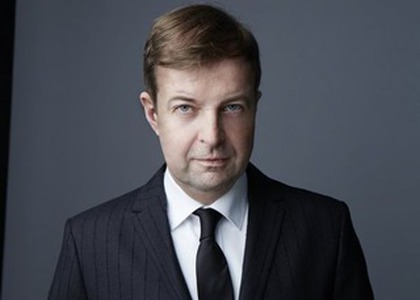> Interviews

Interview with András Almási-Tóth, artistic director of the Hungarian State Opera in Budapest
On Sunday, June 9th, as part of the Bucharest Opera Festival - All Puccini Edition, the Hungarian State Opera House in Budapest will present a semi-staged performance of the opera "Manon Lescaut." For more information, we spoke with András Almási-Tóth, the artistic director of the Hungarian State Opera House, in an interview conducted by our colleague Ioana Țintea.
Mr. András Almási-Tóth, the Hungarian State Opera House in Budapest returns to the stage of the Bucharest Opera Festival, this time for an event dedicated entirely to the works of Giacomo Puccini. What are your thoughts on this festival, especially since you've chosen to participate again?
Our experience last year was truly exceptional. We presented "Pelleas et Mélisande" by Claude Debussy, a unique production. We were blessed with a wonderful audience, whichmade the whole experience extraordinary, as the connections between French and Romanian culture are profound. For this year's edition, we will bring Puccini's opera "Manon Lescaut"to the Bucharest stage with a fantastic cast and a special staging, promising another remarkable experience.
Can you tell us about the talented singers who will be performing?
Soprano Gabriella Létay Kiss, a member of our opera ensemble, will step into the role of the titular character. Adorján Pataki, a tenor from the Hungarian Opera in Cluj, will embody "Des Grieux." Pataki brings a blend of cultural influences to the performance, being half Hungarian and half Romanian. Our baritone, Csaba Szegedi, will take on the role of"Lescaut." This will give us a unique cast for the performance in Romania. The musical direction will be provided by István Dénes, a conductor specializing in Puccini's music.
What aspects of the semi-staged version of "Manon Lescaut" do you hope will impress the audience, and what challenges does executingsuch a performance entail?
Adapting an opera to a semi-staged format can indeed be a challenge for singers accustomed to performing the full version on stage. However, in Puccini's case, the staging is already suggested by his music, making the transition to this format more seamless and natural for the artists. Through our ability to imagine the atmosphere evoked by the musical dialogue, we can create a truly authentic performance of this opera. Needless to say, it is essential to convey all the feelings, thoughts, and emotions, just as we would in a fully staged production. However, given that it is a semi-staged production, we must rely on minimal costumes and sets to support the action. But with the guidance of Puccini and his music, we can create a complete operatic experience.
Translated by Alina-Gabriela Ariton,
University of Bucharest, Faculty of Foreign Languages and Literatures, MTTLC, year I
Corrected by Silvia Petrescu














